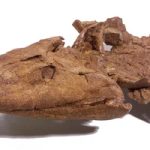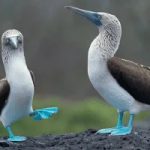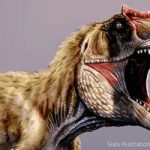Some of the great scientific theories unify our knowledge and have fundamentally changed the way we look at the world. Heliocentrism, for example, is the theory that the Earth and other planets revolve around the sun. Though the community soundly rejected it at one time, it best explained the motions of objects in the sky. In […]
Darwin
The Dinosaurs in your Back Yard – SciWorks Radio Podcast
Dinosaurs are still here, and they’re an incredibly successful species. Ok, what about the fact that earth was hit by an asteroid 65 million years ago, resulting in the extinction of the dinosaurs? Three decades of evidence have forced us to re-think the story: Sixty-five million years ago, an astroid collided with Earth, resulting in […]
Blue-Footed Boobies’ Struggle To Survive in the Galapagos
Winner of the National Science Foundations’s Science 360 Best Science Podcast Award, 2014. The Galapagos islands are famous for their association with Charles Darwin and the theory of evolution by natural selection. But the islands also have species who live there, but did not evolve there; Blue-Footed Boobies for example. Interestingly, they might be relying […]
A New Dinosaur Discovery
Yes, we’re still discovering new dinosaurs! In this podcast, learnabout a new dinosaur discovered by paleontologist Doctor Lindsay Zanno of the Museum of Natural Sciences in Raleigh, North Carolina. A predator, carnivore, 2-legged animal, Siats Meekerorum may have looked and behaved a lot like a Tyrannosaurus Rex, but it lived in a much earlier time […]







